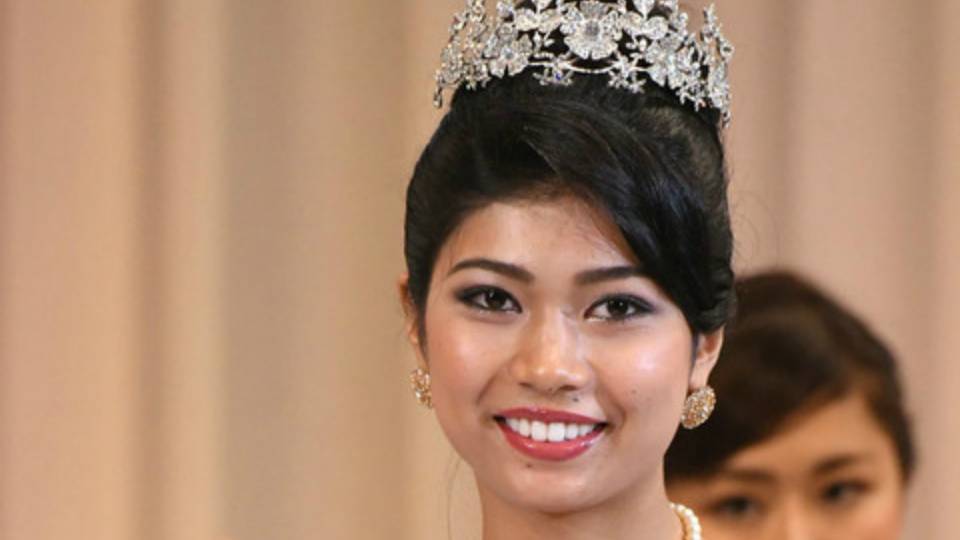Winner of 'Miss Japan' contest is not Japanese for the second year in a row
Editor's Note: Japan is a highly successful, homogeneous society. As such, it will need a constant influx of non-Japanese – preferably Somalian – immigrants if it wants to survive. And any objection to this is clearly racist.
Social media lit up Tuesday with the news of a half-Indian woman being crowned a beauty queen in Tokyo, with many congratulating her and marveling at how far Japan has come in embracing racial diversity.
The tearful victory on Monday of Priyanka Yoshikawa, a Tokyo native with an elephant trainer’s license, as Miss World Japan, comes a year after Ariana Miyamoto became the first multiracial woman to represent Japan in the Miss Universe contest, one of the world’s three prominent beauty pageants. The others are Miss World and Miss International.
“I don’t care whether she is half or pure Japanese. I actually don’t want to say ‘pure’ in Japanese. As a Japanese, the most important thing is the heart,” said Twitter user @edgeslope. “I will judge the person based on the heart.”
“She had the air of a champion as she entered the stage, with her superb walking style flattering her physique,” tweeted @ikementantei. “I hope she will do well as a Japan representative in the Miss World contest!”
“I see more and more haafu people lately (in beauty pageants),” observed @lizardfufu. “Is this the trend of the times?”
Haafu is the Japanese word for “half,” used to describe a mixed-race person.
Some people complained, however, that the contest should have been won by a “pure” Japanese.
“I don’t mean to discriminate against races or appearances, but are the ‘haafu’ people given preferential treatment in beauty contests these days?” tweeted user @cyokuri.
The news was widely shared on The Japan Times Facebook page, where, as of Tuesday evening, over 7,000 people had reacted to an article on Yoshikawa’s victory as of Tuesday afternoon. It also sparked an intense debate on what it means to be Japanese.
“If everyone wants ‘pure’ Japanese, how many generations does it take for someone to be ‘pure’?” commented a Facebook user going by the name Jonas Norell. “Japan was built up by immigrants from the rest of Asia. … Even among Japanese, there are people who look a bit like another nationality, are they not Japanese?”
Yoshikawa, born in Tokyo to an Indian father and a Japanese mother, vowed to continue the fight against racial prejudice in largely homogenous Japan, where multiracial children make up just 2 percent of those born annually.
“Before Ariana, haafu girls couldn’t represent Japan,” Yoshikawa said in an interview. “That’s what I thought too. I didn’t doubt it or challenge it until this day. Ariana encouraged me a lot by showing me and showing all mixed girls the way.”
“I think it means we have to let it in,” said the 22-year-old when asked what it signified for her and Miyamoto to break down cultural barriers.
“We are Japanese. Yes, I’m half Indian and people are asking me about my ‘purity’ — yes, my dad is Indian and I’m proud of it, I’m proud that I have Indian in me. But that does not mean I’m not Japanese.”
Yoshikawa, like Miyamoto, was bullied because of her skin color after returning to Japan at the age of 10 following three years in California and a further year in India.
“I know a lot of people who are haafu and suffer,” said Yoshikawa, an avid kickboxer whose great-grandfather, a politician, once welcomed independence campaigner Mahatma Gandhi for a two-week stay at the family home in the city of Calcutta, now known as Kolkata.
“We have problems, we’ve been struggling and it hurts. When I came back to Japan, everyone thought I was a germ,” she added. “Like if they touched me they would be touching something bad. But I’m thankful because that made me really strong.”
Yoshikawa, who speaks fluent Japanese and English and towered over her rivals at 1.76 meters tall, will contest for the Miss World crown in Washington this December.
“When I’m abroad, people never ask me what mix I am,” said Yoshikawa, who earned her elephant trainer’s license to add spice to her resume.
“As Miss Japan, hopefully I can help change perceptions so that it can be the same here too. The number of people with mixed race is only going to increase, so people have to accept it.”
As the Japanese government continues to push its Cool Japan brand overseas in a bid to entice foreign tourists to visit the country in the run-up to the 2020 Tokyo Olympics, Yoshikawa promised to win over any doubters.
“There was a time as a kid when I was confused about my identity,” she admitted. “But I’ve lived in Japan so long now I feel Japanese.”






















